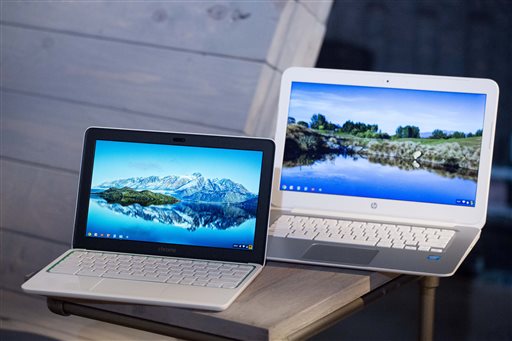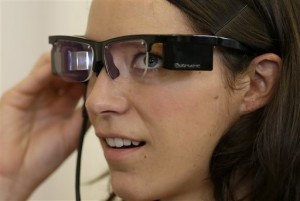Daily Business Report-Oct. 14, 2013
Statue of Juan Rodriguez Cabrillo at Cabrillo National Monument
Cabrillo National Monument’s
100th Birthday Party is Snuffed
A ceremony to mark the 100th birthday of the Cabrillo National Monument was set to take place tonight, but instead it has been canceled due to the partial shutdown of the federal government.
The four-day-long celebration, originally scheduled to start last Friday, would have commemorated the Oct. 14, 1913 proclamation by President Wilson calling for “a heroic statue of Juan Rodriguez Cabrillo” at the Point Loma site.
Centennial events included a lighthouse open tour, art show, pre-1915 car show, ranger-guided walks and a nighttime gala, “Cabrillo Lights Up The Night.”
In addition to the monument, which commemorates Juan Rodriguez Cabrillo’s September 1542 landing at San Diego Bay, the national park also features a 19th century lighthouse, museum and World War II bunkers.
The park welcomes 800,000 visitors each year. It will remain closed and its workers will continue to be furloughed until the government reopens.
–KPBS report

Convention Center Expansion Plan Includes $500k for Park Access
A strange moment came at the end of the Coastal Commission meeting Thursday where San Diego’s Convention Center expansion was ultimately approved, KPBS reports. Steve Cushman, a San Diego Convention Center board member, took the podium and said he’d been working as a special assistant to Interim Mayor Todd Gloria in negotiations between Coastal Commission and Port District staff. He then promised that the city of San Diego would spend $500,000 on “additional access features” for a proposed park on the roof of the Convention Center expansion.
Alex Roth, a spokesman for the mayor’s office, says that money isn’t anything extra — it’s part of the existing construction budget.
Aratana to Acquire San Diego-Based Vet Therapeutics
Aratana Therapeutics Inc., a biopharmaceutical company developing medications for pets, has entered into a merger agreement for the acquisition of San Diego-based Vet Therapeutics Inc., a company with a proprietary antibody-based biologics platform. Under the agreement, Aratana plans to continue to advance the pipeline of high value biologic drugs, including its lymphoma franchise. The acquisition of Vet Therapeutics is expected to significantly accelerate Aratana’s pathway toward becoming a commercial-stage pet therapeutics company, the company said.
Vet Therapeutics’ canine antibody product intended as an aid for the treatment of canine T-cell lymphoma in dogs has been submitted to the U.S. Department of Agriculture for review. The company’s canine monoclonal antibody intended as an aid for the treatment of B-cell lymphoma in dogs has been granted a conditional license by the USDA.

Google Introduces $279 HP Chrome Laptop
NEW YORK (AP) — Google is introducing a $279 laptop that runs its Internet-centric Chrome operating system, borrowing many of the high-end features found in models that cost $1,000 or more.
Hewlett-Packard Co. makes the new HP Chromebook 11. Although its price is in line with most other Chrome OS notebooks, the new model sports many design features found in pricier devices, including the $1,299 Chromebook Pixel.
Unlike Windows and Mac laptops, Chromebooks rely heavily on continuous Internet connections to run Gmail, Google Docs and other online services. Many apps don’t run directly on the device but over the Internet. The devices also have relatively little storage, as documents, photos and other files are supposed to be stored online.
Google promotes Chromebooks as affordable laptops for a wide range of people, including schoolchildren and merchants who can use Google’s tools on the Internet without the extra expense and hassle of installing more sophisticated software such as Adobe’s Photoshop photo-editing software or Microsoft’s Office word processing and spreadsheet package. Chromebooks come with a lightweight photo editing package and Quickoffice, a Microsoft Office alternative that Google bought last year.
The Chromebook 11 has a sleek, plastic frame with no sharp edges or corners —or even screw holes. The speakers are tucked under the keyboard so sound comes out toward the user, even when the laptop is on the user’s lap. Devices with speakers on the back or the bottom don’t do that.
The new laptop’s display measures 11.6 inches diagonally, the same as a popular Chromebook model from Samsung Electronics Co. The Chromebook 11 weighs slightly less, at 2.3 pounds, compared with 2.4 pounds for the Samsung model.
Caesar Sengupta, Google’s vice president of product management for Chromebooks, said HP approached Google after seeing the Pixel, which Google designed and made on its own using an unnamed contract manufacturer.

Race Begins for Wearable Technology
SAN FRANCISCO (AP) — The digital domain is creeping off our desktops and onto our bodies, from music players that match your tunes to your heart beat, to mood sweaters that change color depending on your emotional state — blue for calm, red for angry. There are vacuum shoes that clean the floor while you walk and fitness bracelets, anklets and necklaces to track your calorie burning.
“Everyone agrees the race is just beginning, and I think we’re going to see some very, very big leaps in just the next year,” said tech entrepreneur Manish Chandra at a wearable technology conference and fashion show in San Francisco. Wearable technologies have long been a sideshow to mainstream laptop and smartphones, but this year Google’s glasses and rumors of Apple’s iWatch are popularizing the field. Analysts forecast swift growth. Last year the market for wearable technology — encompassing everything from hearing aids to wristband pedometers — totaled almost $9 billion. That should climb to $30 billion by 2018, said analyst Shane Walker at IHS Global Insights.
Humans have been wearing technology for centuries, from strapped-on compasses to pocket watches. The current surging industry is centered in the Silicon Valley and San Francisco Bay area, where mostly smaller startups design their products locally and have them manufactured in Asia to take advantage of cheap labor. Monday’s conference was one of several focusing exclusively on wearable technology in recent years.
Burnham-Moores Center Hosts Oct. 22 Lecture Series
The Burnham-Moores Center for Real Estate will host its Breakfast at the BMC lecture series at the University of San Diego campus Oct. 22 from 7:30 to 9 a.m. John Kratzer, president and CEO of JMI Realty, will speak at the event. Dennis Cruzan, co-founding partner of Cruzan | Monroe, will serve as moderator. Over the past decade, Kratzer’s achievements include leading the 26-block master planning and development effort that ultimately created Petco Park, which serves as the centerpiece of what is a $2 billion urban redevelopment effort in Downtown San Diego. Prior to joining JMI, he was co-founder of Homegate Hospitality Inc.
To register for the event, visit http://bmc.kintera.org/breakfast2013.


